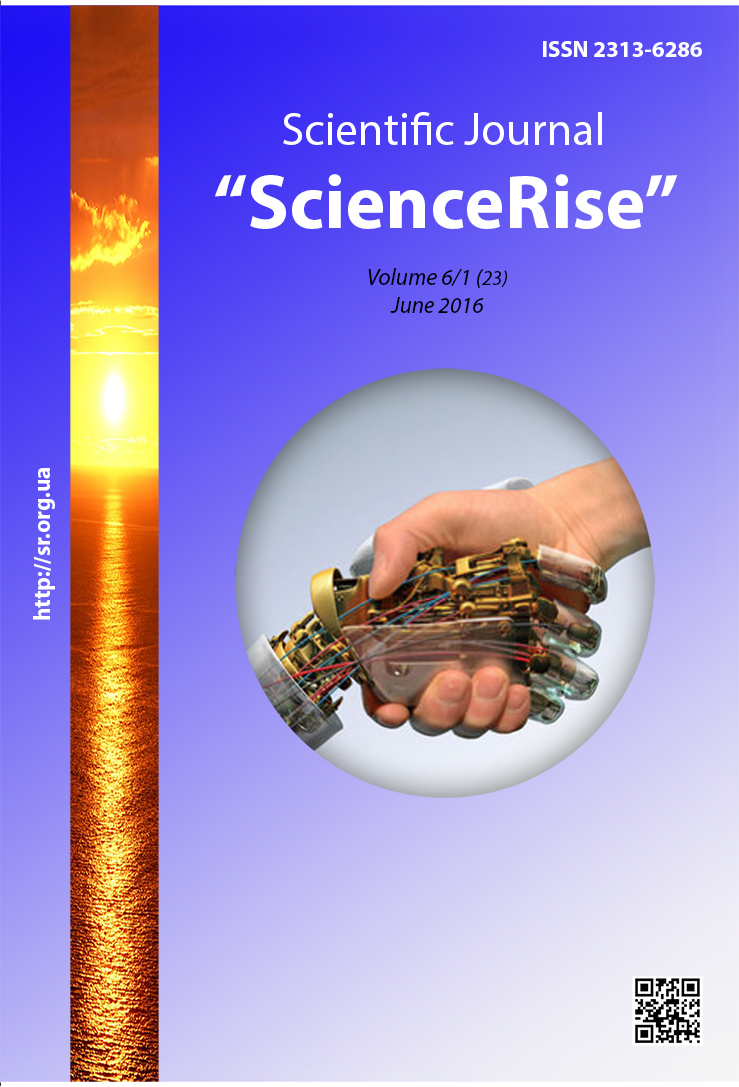Число и реальность: истоки научного знания
DOI:
https://doi.org/10.15587/2313-8416.2016.71546Ключові слова:
Пифагор, число, цифра, сущность, реальность, вечность, гармония, математика, наука, философияАнотація
Учение Пифагора о числе оказало огромное влияние на развитие науки. Число – ключ к высшей реальности, и такой подход позволил Пифагору превратить математику из ремесла в науку, которая продолжает реализацию его проекта «оцифровки бытия». Проект Пифагора претерпел значительную трансформацию, но это лишь означает, что замысел в деле познания часто оказывается далек от результата
Посилання
Needham, J. (2013). The Grand Titration: Science and Society in East and West. London; New York, NY: Routledge, 368.
Spengler, O. (1926). The Decline of the West: Form and Actuality. Vol. I. New York, NY: Alfred A. Knopf, 443.
Kuhn, T. S. (1996). The Structure of Scientific Revolutions. Chicago, IL; London: The University of Chicago Press, 212. doi: 10.7208/chicago/9780226458106.001.0001
Iamblichus (1818). The Life of Pythagoras, or Pyphagoric Life. London: J. M. Watkins, 252.
Diogenes Laertius (1925). Lives of Eminent Philosophers. Vol. II. London; New York, NY: William Heinemann; G. P. Putnam’s sons, 704.
Vogel, C. J. (1966). Pythagoras and Early Pythagoreanism: An Interpretation of Neglected Evidence on the Philosopher Pythagoras. Assen: Van Gorcum & Co., 323.
Ferguson, K. (2008). The Music of Pythagoras: How an Ancient Brotherhood Cracked the Code of the Universe and Lit the Path from Antiquity to Outer Space. New York, NY: Walker & Co., 384.
Hermann, A. (2004). To Think Like God: Pythagoras and Parmenides, The Origins of Philosophy. Las Vegas, NV: Parmenides Publishing, 374.
Kahn, C. H. (2001). Pythagoras and the Pythagoreans: A Brief History. Indianapolis, IN; Cambridge, MA: Hackett Publishing Company, 194.
Russell, B. (1947). History of Western Philosophy. London: George Allen and Unwin, 916.
Hegel, G. W. F. (1892). Lectures on the History of Philosophy. Vol. I. London: Kegan Paul, Trench, Trübner & Co., 487.
Aristotle (1998). Metaphysics. London: Penguin, 460.
Plotinus (1988). Ennead. Vol. VI. Cambridge, MA: Harvard University Press, 352.
Plato (1997). Complete Works. Indianapolis, IN; Cambridge, MA: Hackett Publishing Company, 1808.
McKirahan, R. D. (2010). Philosophy Before Socrates: An Introduction with Texts and Commentary. Indianapolis, IN; Cambridge, MA: Hackett Publishing Company, 494.
Halapsis, A. (2006). Sotsialnoe prognozirovanie i sinergeticheskaya model kultury [Social forecasting and synergetic model of a culture]. Philosophy, Culture, Life, 26, 36–48.
Halapsis, A. (2016). Marcus Aurelius and the concept of apotheosis in the ancient worldview. ScienceRise, 4/1 (21), 54–59. doi: 10.15587/2313-8416.2016.67547
Galilei, G. (2008). The Essential Galileo. Indianapolis, IN; Cambridge, MA: Hackett Publishing Company, 380.
Halapsis, A. (2016). Historical process and heavenly management: Hesiod’s message. ScienceRise, 5/1 (22), 63–70. doi: 10.15587/2313-8416.2016.69142
##submission.downloads##
Опубліковано
Номер
Розділ
Ліцензія
Авторське право (c) 2016 Алексей Владиславович Халапсис

Ця робота ліцензується відповідно до Creative Commons Attribution 4.0 International License.
Наше видання використовує положення про авторські права Creative Commons CC BY для журналів відкритого доступу.
Автори, які публікуються у цьому журналі, погоджуються з наступними умовами:
1. Автори залишають за собою право на авторство своєї роботи та передають журналу право першої публікації цієї роботи на умовах ліцензії Creative Commons CC BY, котра дозволяє іншим особам вільно розповсюджувати опубліковану роботу з обов'язковим посиланням на авторів оригінальної роботи та першу публікацію роботи у цьому журналі.
2. Автори мають право укладати самостійні додаткові угоди щодо неексклюзивного розповсюдження роботи у тому вигляді, в якому вона була опублікована цим журналом (наприклад, розміщувати роботу в електронному сховищі установи або публікувати у складі монографії), за умови збереження посилання на першу публікацію роботи у цьому журналі.

